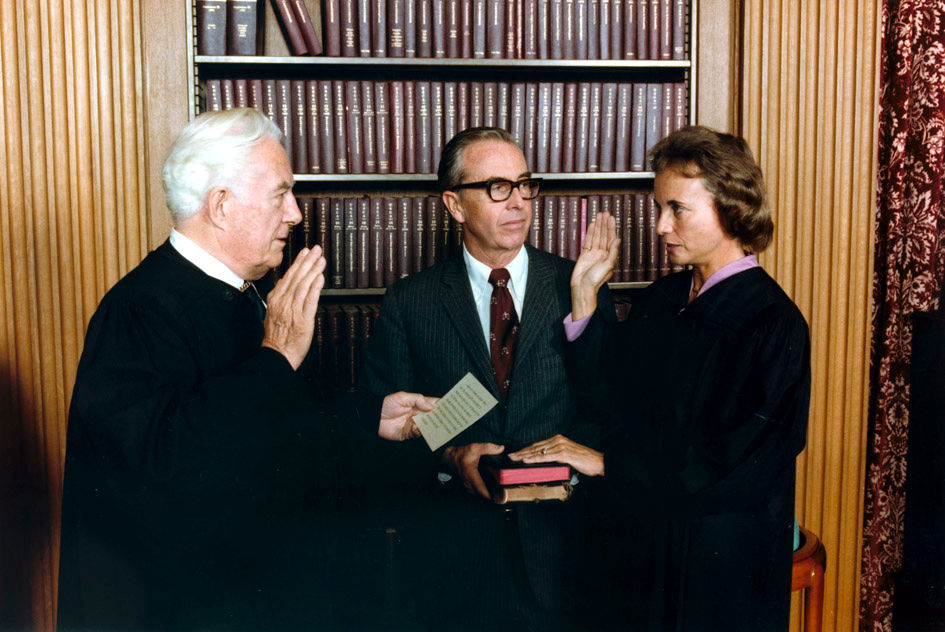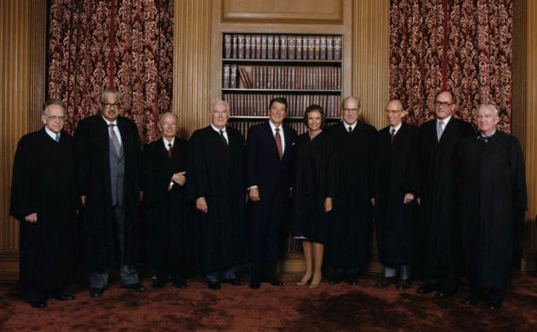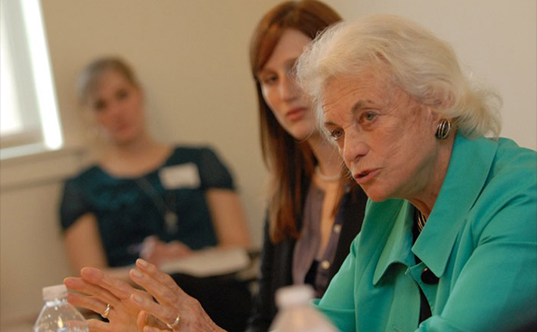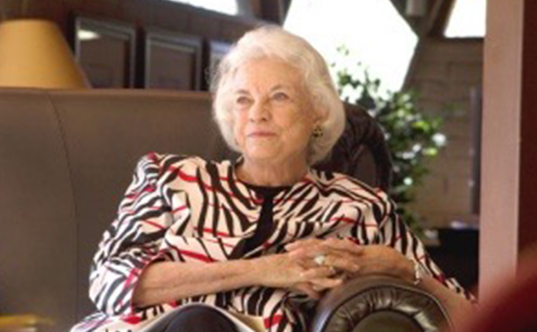On Her Birthday, Reflecting on Justice O’Connor’s Legacy
Justice Sandra Day O’Connor would have turned 95 today, March 26, 2025. Though she passed away in December 2023, her legacy—of civility, good-faith consensus building, and an unwavering belief in American democracy—remains as vital as ever.
Justice O’Connor was the first woman to serve on the United States Supreme Court. And while this was a seminal, groundbreaking achievement, her impact extends far beyond it. Indeed it is perhaps her legacy of civility and finding common ground that will matter most in the years and decades to come, helping to inform how Americans navigate our nation’s challenges and differences. In an era of increasing polarization, Justice O’Connor reminds us: “It is possible to disagree without being disagreeable.”


She lived by this principle. Throughout her tenure on the Court, she approached each case with thoughtful deliberation, treating even the most contentious issues with deep respect for differing perspectives. She understood that civil discourse is not a weakness—it is the lifeblood of democracy. It allows us to confront challenges thoughtfully, encourages collaborative and durable solutions, and respects the inherent dignity of each individual.
In another first, during her time in the Arizona State Senate, Sandra Day O’Connor became the nation’s first female majority leader. This legislative experience sharpened her ability to build consensus; she was even renowned for leveraging her culinary skills to bring together colleagues, from both sides of the aisle, over shared meals.
At the Sandra Day O’Connor Institute for American Democracy, we continue to advance our founder’s legacy through a commitment to multigenerational civic education, civic engagement, and civil discourse. Justice O’Connor knew that civility is not just about politeness; it is foundational to effective governance and lasting policy solutions.
Research confirms what Justice O’Connor intuited—that civility directly contributes to productive governance. A recent study conducted by political scientists at the University of Arkansas, the University of Kansas, and Washington State University found a striking correlation between civility and legislative productivity. They uncovered that the states where legislators were the most civil with each other passed roughly twice the number of bills as did the most uncivil legislatures.


These findings underscore an essential truth: civil discourse is not an idealistic aspiration but a pragmatic necessity. Effective public policy is built on productive, respectful conversations among citizens and their representatives. This principle is not new; it was understood by the very architects of our democracy. The philosopher John Locke, whose writings significantly influenced America’s founders, wrote, “Truth has no such way of prevailing as when strong arguments and good reason are joined with the softness of civility and good usage.”
Justice O’Connor approached decision-making in exactly this way. She sought common ground without compromising intellectual rigor or core principles, recognizing that progress in a diverse democracy requires information, conviction, and cooperation. In all she did, she remained steadfast in her belief that respectful dialogue strengthens our institutions and builds a more united country.
Civil discourse, like democracy itself, requires continual renewal. It demands that we not only listen but truly seek to understand. It requires that we assume good faith in others, even when we profoundly disagree. And it calls on us to resist the temptations of cynicism, pessimism, and tribalism, instead fostering a culture where compromise is seen not as weakness but as the foundation of effective governance.
As we mark what would have been Justice O’Connor’s 95th birthday, let us not only honor her legacy but also commit ourselves to upholding our nation’s ideals, as she would want. Our American democracy will be stronger when we choose civility over conflict, when we prioritize dialogue over division, and when we recognize—as she did—that the strength of our nation lies not in uniformity, but in our ability to navigate differences with respect, reason, and grace.



